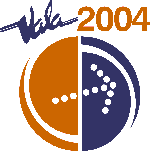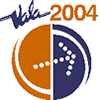Persistent URL: http://www.vala.org.au/vala2004-proceedings/vala2004-session-2-sullivan
Bringing hidden treasures to light: illuminating DSpaceVALA 2004 CONCURRENT SESSION 1: Managing Digital Objects Shirley SullivanElectronic Information Coordinator, University of Melbourne Library Lynne HorwoodInformation Librarian, University of Melbourne Library Jane GarnerInformation Librarian, University of Melbourne Library Eve YoungInformation Librarian, University of Melbourne Library |  |
Please tag your comments, tweets, and blob posts about this session: #VALA2004
Abstract
The Open Archives Initiative (OAI) has gained momentum since eprints.org was released in 2000. An alternative to eprints.org is the recently released DSpace, the open source software developed at MIT. The paper will trace the history and development of DSpace initiatives, such as the joint project between MIT and University of Cambridge. It also discusses the impact and benefits of repositories for research institutions and libraries.

 VALA2004, the 12th VALA Biennial Conference and Exhibition was held at the Melbourne Convention and Exhibition Centre, Melbourne, Australia from 3 – 5 February 2004. The theme of the conference was Breaking Boundaries: Integration & Interoperability.
VALA2004, the 12th VALA Biennial Conference and Exhibition was held at the Melbourne Convention and Exhibition Centre, Melbourne, Australia from 3 – 5 February 2004. The theme of the conference was Breaking Boundaries: Integration & Interoperability.